|
6 December marks 80 years since Ruperra Castle was gutted by fire during the second world war. To commemorate the event we are telling stories from our book, Ruperra Castle War and Flames 1939-46. The 181st Regiment of the Royal Army Medical Corps were already billeted in the Castle. Frank’s unit, the 152 which became absorbed into the 181, lived outside in bell tents in the Castle grounds. There was also a detachment of drivers for the Royal Army Service Corps for the ambulances kept at the back of the Castle.
Before Frank was introduced to his wife, they used to go to Bedwas Hall on a Friday night on the ‘passion wagon’ from Ruperra, which dropped them off and picked them up. His future mother-in-law, a member of the British Legion committee, every night made sandwiches for the soldiers in the Machen Rugby Club. There was a regiment of the Indian Army attached to unit which would call out, ‘Johnny come and have a cup of chai’. They would bring their mules camped on a field the other side of the Castle up to the gravel on the east side of the castle to be loaded. The training included putting large medical panniers on either side of the mules. This used to frighten Frank to death, because they would kick out when having the panniers strapped down. The Indians used to hold the mules steady, but you’d often see them dragged along the floor for about 30 yards if the mule bolted. But they wouldn’t let go, they were very brave. Then they’d take them back to their field to unload them again.
Two of the unit would walk behind each Indian soldier with his loaded mule, carrying a stretcher with a blanket inside, walking about 20 miles a day. The handles of the stretcher would end up between the webbing of the uniform because of blistered hands. Frank wore out a new pair of Army boots one fortnight while he was away. The sergeants forbade people to give drinks of water. "Water bottles were carried on their sides, a full pack on our backs and a gas mask in front plus a steel helmet. It was exhausting but that was the training. They must have intended training them for a mountainous region, but in fact we were sent to the desert! They went right up in the mountains, with marvellous views which weren’t really appreciated at the time. “On manoeuvres, we slept in the fields with their gas capes wrapped around us. The mules stampeded through our field one night. I jumped up from the ground and managed to get to one side just in time as a mule came leaping over me. Of course the Indians had to catch them then, but they were good at it, fair play. Probably there were about 50 mules - it seemed more the night they stampeded."
"When I went back there after the war, I got talking to a chap who turned out to be Mr Lewis and he remembered me coming in the café. In the Machen Working Men’s club - the steward there was a lady called Mrs Cann. “At Ruperra we were billeted in one of the towers at the back with eight or ten of us all the way round that room. In the hall there was a mess room the officers and the clerical staff – we were all upstairs; we were three companies about fifty in each company, including officers and NCOs. The Service Corps - RASC - were there the same time with us with officers for each company. The officers were in one wing of the castle and us in the other. The big hall was the dining room for us men and they’d serve us there from the basement cookhouse. They used the ambulances to go to Abergavenny to the depot to get the rations." "Soon after he was sent up to Scotland but he kept writing to me and when he had leave he came down and we were married in Rudry Church. Straight after he went out to North Africa. He was away four years and when he came back he couldn’t settle at first, the war did these things to them, they couldn’t help it. You don’t know what other people are suffering unless you’re going through it yourself. He wouldn’t talk about it. He was never even willing to travel after the War; he said he’d travelled enough. But it transpired that he had actually fought at Monte Cassino and possibly never recovered properly. "
"Soon after he was sent up to Scotland but he kept writing to me and when he had leave he came down and we were married in Rudry Church. Straight after he went out to North Africa. He was away four years and when he came back he couldn’t settle at first, the war did these things to them, they couldn’t help it. You don’t know what other people are suffering unless you’re going through it yourself. He wouldn’t talk about it. He was never even willing to travel after the War; he said he’d travelled enough. But it transpired that he had actually fought at Monte Cassino and possibly never recovered properly." After Ruperra... Later, half the unit 181st Regiment of the Royal Army Medical Corps volunteered to join an airborne glider division and left the castle. Franks Baumers' half went to Talycoed, which was where they heard that the Castle had burnt down. Frank Baumer remembers... "Our unit was right there behind the battle line to receive all the casualties. Over our 3 ton vehicle we had a canvas sheet and tents for the medical unit. The stretcher bearers would bring the casualties a short distance to us in ambulances and we used to see to them, give them a cup of tea, which was very much appreciated. Then the medical officers would take over. That was where we got our first experience of proper war. “Being sent abroad they joined the UK 14th Field Ambulance Unit in the Gaza strip, and ended up at Alamein. There it seemed that for a long time nothing happened. Then one night General Montgomery came to give a talk. It was very quiet. ‘Be prepared,’ he said, ‘tonight we’re going to hit them for six.’ Around 10 o’clock everything opened up and you could feel the desert shaking. "Then they were sent by ambulance down the line to Cairo or Alexandria, to the Army medical units there and the Queen Alexandra nurses. "One time, as I was bandaging a chap’s leg and talking to him to take his mind off things, I asked him where he came from because I could hear he was Welsh. ‘Oh’, he said ‘It’s a little place, you wouldn’t know it.’ So I said, ‘I don’t know, it’s possible, where is it?’ He said ‘It’s a little place called Machen.’ I said ‘Do you know Jim the Post?’ ‘Jim the Post!’ he said and I can see his face now. ‘I’m Fred Buckley, I live in 3 Club Row.” Jim Bell remembers... “After Ruperra we went back up to Scotland and then to North Africa through Sicily and Italy to Austria and we were there three years. While we were up in Scotland, I volunteered to be an orderly, because I thought that if we’re going abroad now, you’ve got the ambulance and you’ve got somewhere to sleep. So the ambulance driver took the first aid course and then I took the driving course so I could drive if he got wounded and if I was wounded he could do the first aid. “When we first went over to North Africa in ’42 there were cardboard tanks put on the road side so that the Germans would think we had tanks. We were in a little farmhouse with a camouflage net over the trees. We’d got our heads down this one night and suddenly noticed how quiet it was. We found our regiment had gone, retreated back and the Germans were advancing. If we hadn’t woken up then, they’d have taken us prisoner. On another occasion, we heard the locals calling because they had a wounded American pilot who had bailed out. They could have handed him over to either side and luckily enough for him we were there and could take him back to our first aid post. “One time, when we were half way up through Italy, and although the Italians had surrendered there was very little food in the local general hospital Claggenfort. There was an Italian interpreter there who had been conscripted when returning from England to serve with the Germans, whom we invited to come and eat with us as we were then having American rations which were marvellous compared with the British. I don’t know where they got it from - and chocolates and sweets. He asked me to write home to his parents who lived in Blackpool because they didn’t know here he was. “Monte Casino in Italy was called the ‘mad mile’ because the ambulances couldn’t get up there. The stretcher bearers had to carry the wounded down from the top of the mount to our jeeps. The Germans could see us and they could have shot us - all we had was the Red Cross flag on the jeep. "We went to pick some men up and one turned out to be my brother. No one was able to do anything for him at any of the dressing stations so we had to go take him right back to the general hospital. “Back at the front the next day I picked up his two mates from the Enniskillen Fusiliers, At this point we had help from the American Field services and often they were professors and doctors doing their 6 month national service and going back to America. “The American ambulances were very narrow with two stretchers on the top and a bracket each side. It was difficult to treat the wounded There was only a small space between them. In our ambulances there was a seat at the back so that treatment was possible." 80 years on and Ruperra Castle is still a ruin at risk of collapse - help Ruperra Castle Preservation Trust save the Castle and surrounding buildings and gardens by campaigning to secure them to use for community benefit, and to ensure a better future for our precious local heritage. Help us secure a future for this important monument - become a member before the end of 2021 and we will send you a free copy of our book – Ruperra Castle War and Flames 1939-46. You can also buy the book separately for £6.
0 Comments
Your comment will be posted after it is approved.
Leave a Reply. |
Archives
February 2024
Categories
All
|
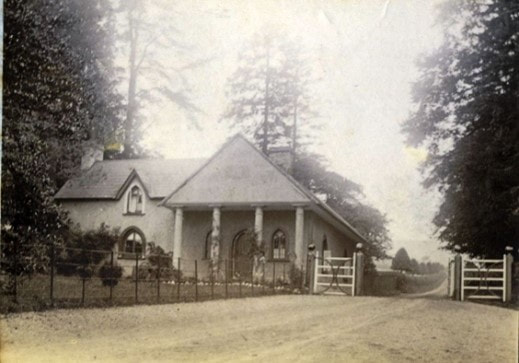
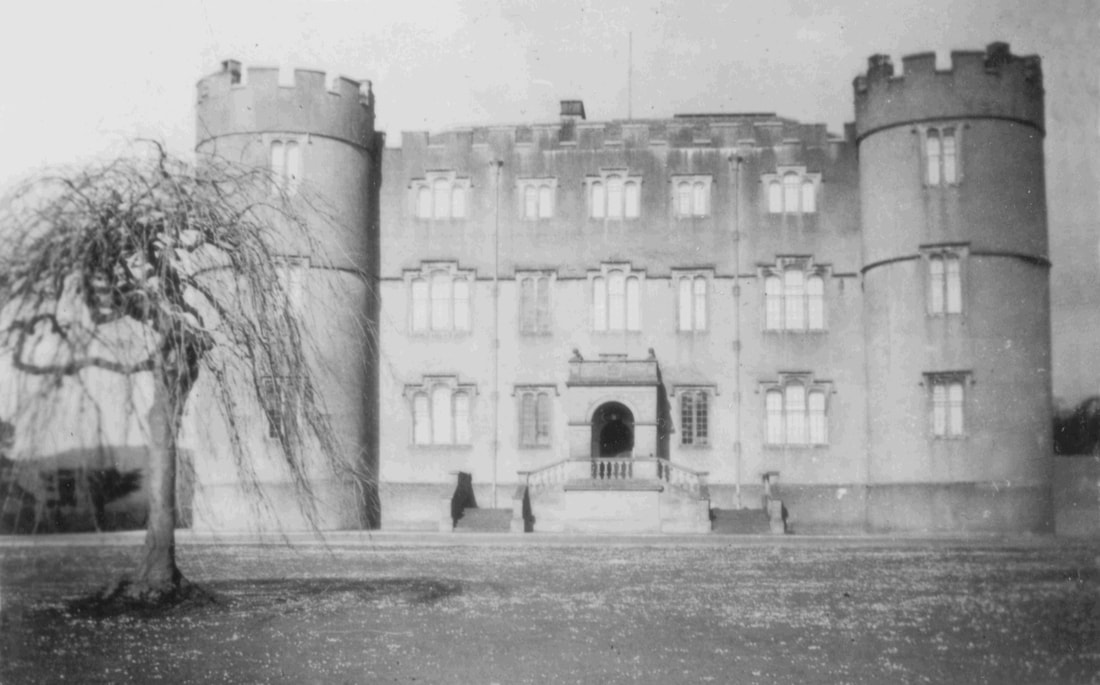
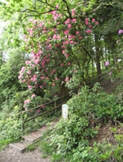
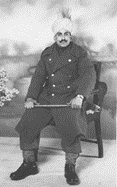
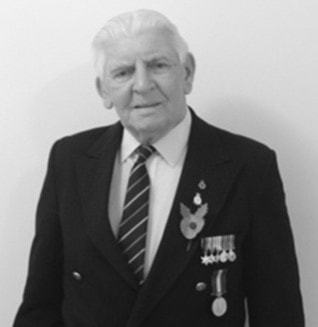

 RSS Feed
RSS Feed
